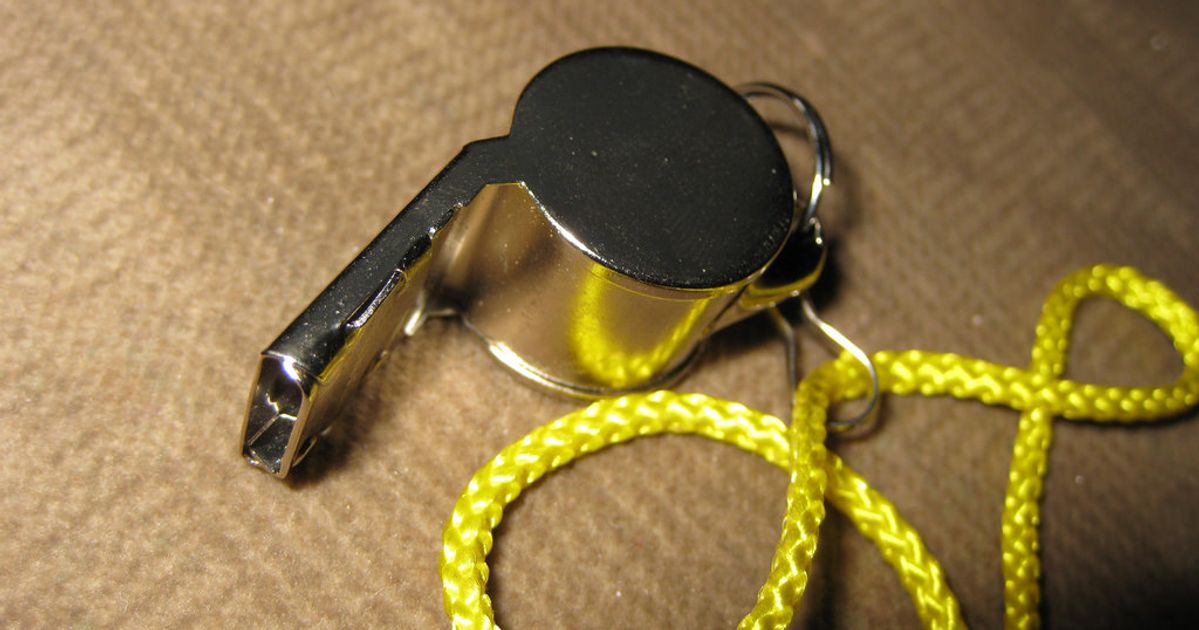It's an adage as old as time. You can't play football without a referee.
We're all told from a young age that we must respect the referee's decision and there's no grey area there, but in the age of instant replay, a thousand different camera angles and social media, the vile and putrid treatment of our referees and match officials has gone too far and it's the game itself that will suffer.
With veteran whistleblower Matt Cecchin confirming to news.com.au that he's walking away at the end of the season after suffering wave after wave of hate-mail and death threats, it's time we started talking a good, hard look at how we treat referees and what can be done to change attitudes and ensure we've all got a game to watch in the future.
There will literally always be contentious calls and referees, touch judges and the guys in the Bunker will make mistakes. Mistakes are human nature and when decisions are subjective and open to a level of human interpretation, there'll always be people unhappy with a decision that is made, even if the general post-game consensus winds up vindicating the decision.
A veteran referee on the way out
Cecchin will take charge of his 300th NRL game this Sunday when he enters Panthers Stadium for Penrith's game with the Canberra Raiders, but with confirmation that he'll walk away from the gig at the end of the season, there are big question marks over the future make-up of the referees group and how continually shedding the most experienced decision-makers in the game will come back to bite us all.
Despite the decision later being vindicated as correct, Cecchin's story focussed on the abuse and death threats he was inundated with following a World Cup semi-final clash between England and Tonga.
“How much better could we be if the environment was a little bit more positive? If a ref could go out there knowing he’s got to work hard but if he makes a bad call it won’t be the end of the world?” - Matt Cecchin
Cecchin's decision to disallow a Tonga try was immediately contentious and drew a huge response on social media but it is the sad aftermath, where he and his family were rushed out of New Zealand by New Zealand Police and later under watch by the Australian Federal Police that really drives home how sickeningly horrid the whole situation became.
No one who makes a mistake at work should have to deal with that sort of backlash. That the decision was ruled correct on review post-game would do little to comfort Cecchin or his family.
“We’ve picked up hundreds and hundreds of messages and they are death threats," NZ Police told Cecchin.
“I want to do my job without any fuss and then leave. The reality is that after that game, and for the first chunk of this year with all the noise that’s been out there, it’s been tough. Really, really tough," said Cecchin.
The 2018 NRL civil war
That the game has seemingly landed in a sort of civil war, between those who want to upend the system, overhaul the entire process and turf out leading figures like Todd Greenberg and Peter Beattie and those who have responded under the banner #TalkTheGameUp should not put real people like Cecchin at the centre of such outrageous actions.
It's no Super League war, but sometimes it feels just as bitter and divisive.
Clearly there are a number of people unhappy at where the game is at and the leadership group responsible for taking charge of the game and naturally there are people who fall on the other side of the fence, but if we can't sit down together as one and see how we're letting ourselves down with our treatment of referees, then one day there won't be a game left to fight over.
That one of our better referees is walking away from the game and has been seeing a sports therapist twice daily to handle the way he is treated by 'fans' of our game shows a complete disregard for the human nature of sport.
Yes, we're all passionate. The word fan is derived from the word fanatic for a reason, but treating whistleblowers so poorly that they feel they have to leave the game for their own mental health and wellbeing is a short path to a bad result.
Can the game improve without improving the way we treat officials first? Let us know in the comments below.
[zombify_post]
Explore new topics and discover content that's right for you!
News



